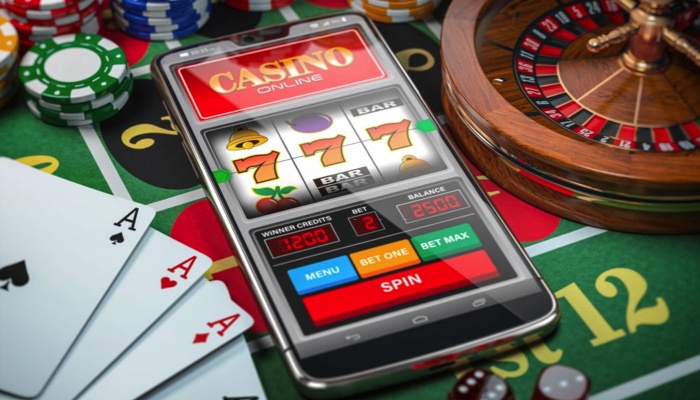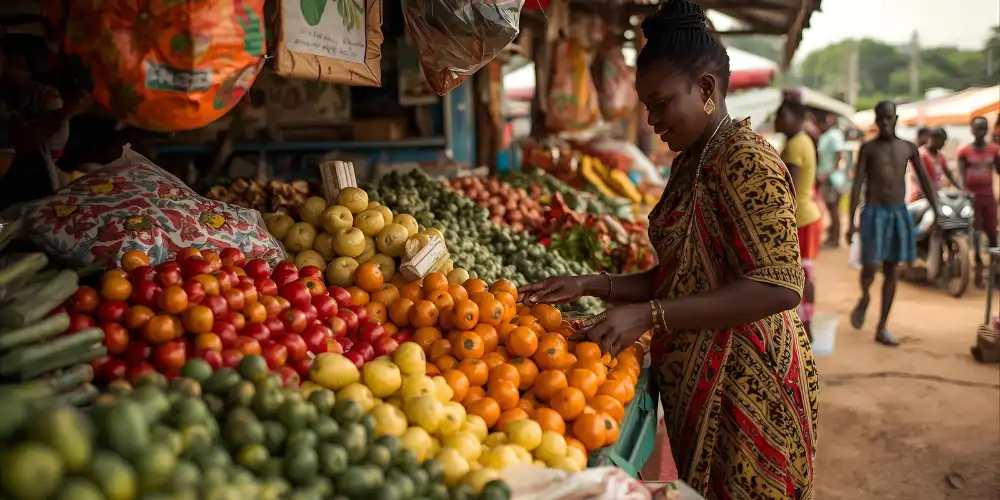A Deal with the Devil: Unveiling Africa’s Hidden Gambling Crisis and Its Public Health Impact

A Deal with the Devil: Unveiling Africa’s Hidden Gambling Crisis and Its Public Health Impact
Across Africa, a silent crisis is escalating — one that threatens not just individual lives but the well-being of entire communities. The gambling crisis, frequently dismissed as a mere personal failing or lack of self-control, is, in reality, a serious public health emergency demanding urgent attention. From urban centers to rural areas, increasing access to betting platforms and aggressive marketing tactics have fueled a growing epidemic of gambling addiction and financial ruin.
Understanding Africa’s Gambling Explosion
In recent years, gambling has surged in popularity across many African countries. This boom is powered by rapid technological advancement, including the widespread use of mobile phones and internet connectivity, making online betting more accessible than ever. Popular forms include sports betting, lotteries, and casino games — activities that once were largely limited to physical venues but now are just a click away.
This explosive growth has been accompanied by minimal regulation in many regions, allowing gambling operators to aggressively target vulnerable populations. The youthful demographic, which constitutes a large proportion of Africa’s population, is particularly susceptible to the allure of quick money and easy thrills.
Urban areas have witnessed a proliferation of betting shops, while rural populations are increasingly drawn into online gambling through mobile devices. This geographical spread highlights how the crisis permeates all levels of society, regardless of economic status.
For more insights into social issues in Africa, visit our Social Challenges in Africa page.
The Public Health Dimension: More Than a Personal Problem
Despite the scale of the problem, gambling addiction in Africa is often framed as an individual’s moral or psychological failure. This misconception obscures the broader public health implications, which include:
- Mental Health Disorders: Anxiety, depression, and stress linked to compulsive gambling are becoming more prevalent. Many individuals suffer in silence due to stigma and lack of mental health resources.
- Financial Ruin: Loss of savings, accumulation of debt, and economic instability are common among problem gamblers. This often leads to an inability to provide for families or meet basic needs.
- Family and Social Disintegration: Relationships break down as gambling addiction fuels domestic violence, neglect, and social isolation.
- Criminal Activities: In desperate attempts to fund their gambling habits, some turn to theft, fraud, or other illegal activities, further exacerbating social problems.
Healthcare professionals and policy makers are beginning to recognize gambling addiction as a multifaceted issue that requires integrated approaches combining medical treatment, psychological support, and social services.
Economic and Social Consequences of the Gambling Crisis
While gambling contributes to economic activity and government revenues through taxation, the hidden social costs often outweigh these benefits. Communities grappling with widespread gambling addiction face serious challenges, including:
- Increased Poverty: Money lost to gambling exacerbates poverty cycles, particularly among low-income families, creating a vicious cycle of economic hardship and addiction.
- Impact on Youth Employment: Youth diverted from productive employment towards risky gambling behaviors suffer long-term setbacks in skill development and economic prospects.
- Strain on Healthcare Systems: The rising incidence of gambling-related mental health problems puts additional pressure on already overstretched healthcare systems, especially in rural areas.
- Undermining Social Cohesion: The erosion of trust within communities due to gambling-related conflicts weakens social bonds and communal resilience.
The economic promise of gambling often masks these serious societal costs, which policymakers must account for when shaping national gambling policies.
To explore how economic factors intersect with social health issues, check our Economic Development resources.
The Role of Technology and Advertising
The digital revolution has been a double-edged sword in Africa’s gambling landscape. Mobile betting apps offer convenience but also increase the risk of addiction, as users can gamble anytime and anywhere. This ease of access makes it difficult for vulnerable individuals to resist the temptation.
Moreover, aggressive advertising campaigns glamorize gambling, often hiding the risks and consequences. Television ads, social media influencers, and celebrity endorsements frequently portray betting as a glamorous and lucrative pastime, appealing especially to young people who aspire to quick success.
These marketing strategies are not without controversy. Critics argue that many advertisements target underage audiences and economically disadvantaged groups, exacerbating existing inequalities.
Policy Gaps and the Need for Stronger Regulation
Many African countries lag behind in establishing comprehensive gambling regulations that protect citizens. Weak enforcement, outdated laws, and limited resources contribute to a regulatory environment that favors operators over public health.
Experts and advocacy groups call for:
- Stricter Licensing and Oversight: Ensuring only responsible operators are allowed to function, with penalties for violations.
- Limits on Advertising: Banning promotions that target minors or vulnerable populations and requiring clear warning labels on gambling ads.
- Support Services: Creating accessible treatment centers, counseling services, and helplines for problem gamblers.
- Public Awareness Campaigns: Launching educational programs to inform the public about the risks of gambling and promote responsible behavior.
Several countries, such as Kenya and South Africa, have begun revising gambling legislation, but enforcement remains inconsistent. International cooperation and knowledge-sharing could accelerate progress in this area.
For updates on regulatory frameworks, visit our Policy Updates section.
International Efforts and Support Systems
Global organizations such as the World Health Organization (WHO) and the United Nations have begun to recognize gambling addiction as a public health issue. This recognition has paved the way for international collaboration aimed at developing guidelines and supporting affected countries.
In Africa, NGOs and local groups are stepping up to fill gaps, offering counseling and advocacy. Programs focused on youth education, family support, and community engagement are gaining momentum despite funding and social stigma challenges.
International partnerships can help provide resources, research data, and technical assistance to enhance national responses to the gambling crisis.
Discover more about international health initiatives on our International Health Initiatives page.
Personal Stories: The Human Cost Behind the Numbers
Behind the statistics are countless individuals whose lives have been devastated by gambling addiction. Consider the young man who gambled away his university tuition, or the single mother forced to sell household possessions to cover mounting debts. These personal tragedies highlight the human cost of a crisis too often ignored.
Local media and support groups have documented numerous such stories, underscoring the urgent need for compassionate intervention and community-based support networks.
Conclusion: Towards a Healthier Future for Africa
The gambling crisis in Africa is more than a matter of personal choice — it is a growing public health emergency that demands coordinated action. By acknowledging the scale and complexity of the problem, governments, civil society, and international partners can work together to build safer communities.
Stronger regulations, public education, and accessible support services are essential steps. Only by confronting this challenge head-on can Africa hope to turn a deal with the devil into a pact for progress, ensuring that economic growth does not come at the expense of human dignity and well-being.
Further Reading and Resources
- World Health Organization: Gambling Disorder Fact Sheet
- UN Office on Drugs and Crime: Gambling
- SafariNow News: Africa’s Rising Gambling Addiction
- Gambling Therapy: Support and Resources
A Deal with the Devil: Unveiling Africa’s Hidden Gambling Crisis and Its Public Health Impact

A Deal with the Devil: Unveiling Africa’s Hidden Gambling Crisis and Its Public Health Impact
Across Africa, a silent crisis is escalating — one that threatens not just individual lives but the well-being of entire communities. The gambling crisis, frequently dismissed as a mere personal failing or lack of self-control, is, in reality, a serious public health emergency demanding urgent attention…
A Deal with the Devil: Unveiling Africa’s Hidden Gambling Crisis and Its Public Health Impact

A Deal with the Devil: Unveiling Africa’s Hidden Gambling Crisis and Its Public Health Impact
The gambling crisis in Africa is more than a personal issue—it’s a deal that has gone terribly wrong for millions. Governments, tech companies, and communities are all part of this complex deal, one that trades short-term profit for long-term social cost. It’s crucial to re-evaluate what kind of deal African societies are striking with the betting industry.
The Scope of the Gambling Deal in Africa
This deal is not just economic—it’s psychological, social, and political. With mobile access and digital platforms booming, the deal has become easier for vulnerable individuals to enter, often without realizing its consequences. For many, the first bet may feel like a game, but it quickly turns into a binding deal with devastating outcomes.
Operators offer promotions and bonuses to sweeten the deal, making it difficult for people to walk away. And while these incentives may seem harmless, they are part of a wider strategy that benefits from keeping users hooked. Ultimately, it’s a deal that offers false hope while quietly draining lives and wallets.
Who Benefits from the Deal?
On the surface, governments benefit through taxation. Betting companies profit enormously from this deal, often with limited accountability. However, the everyday citizens—the very people for whom this deal was never fair—are the ones left picking up the pieces.
Regulators often fail to hold gambling platforms to account, creating an uneven playing field. The deal is tilted in favor of corporations, while the public bears the burden of addiction, broken families, and social decline.
Learn more about regulatory frameworks on our Policy Updates page.
Rethinking the Deal: Solutions and Support
Breaking the cycle of this destructive deal requires immediate action. Governments need to implement stricter regulations that govern advertising, licensing, and age restrictions. NGOs and mental health professionals must also be part of the deal, offering support systems for those already affected.
We need a new social deal—one that puts public health, ethical business, and responsible gaming at the center. Education campaigns and better access to treatment programs are vital to reversing the current trend.
Explore community responses and prevention efforts in our Social Challenges section.
Conclusion: Is This a Deal Worth Keeping?
As Africa grapples with increasing levels of gambling addiction, poverty, and mental health issues, the current deal with the betting industry must be questioned. Is this a deal that serves the future of the continent—or one that undermines it?
We must ask ourselves: what are we really gaining from this deal, and at what cost? If we continue down this path, the real gamble may be on Africa’s future itself.




